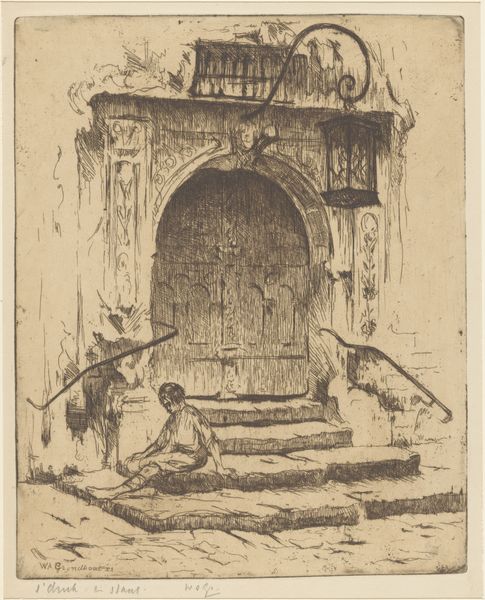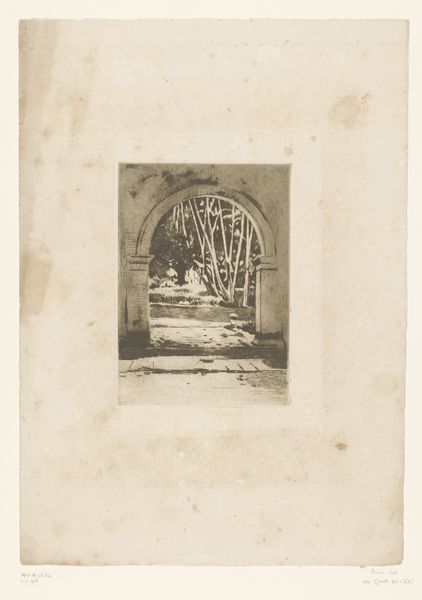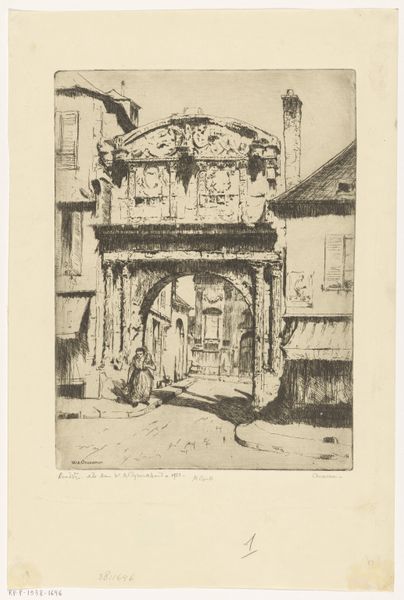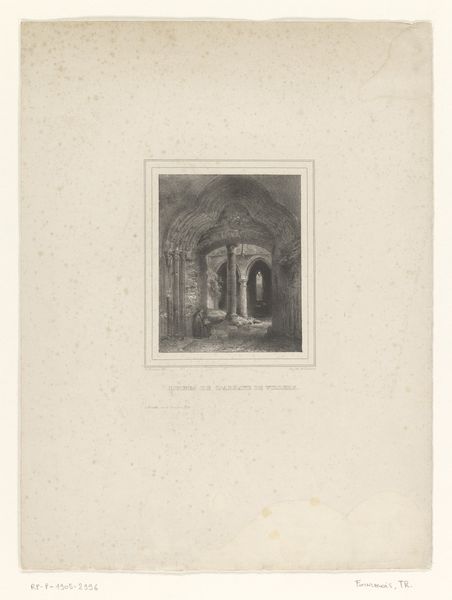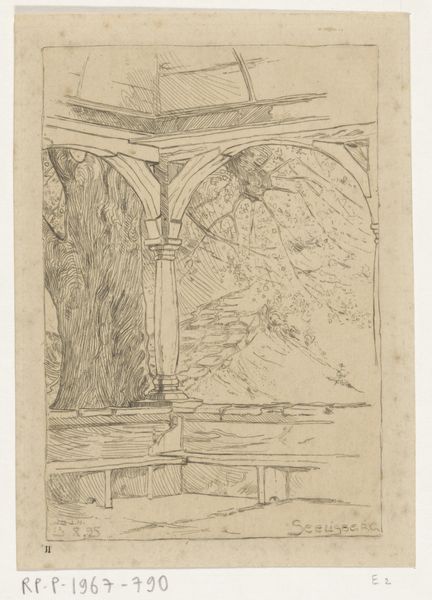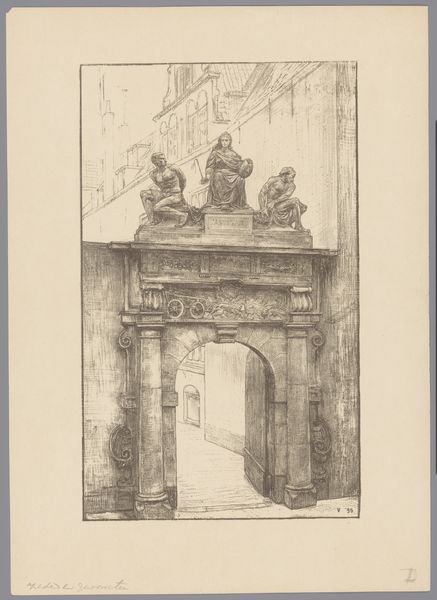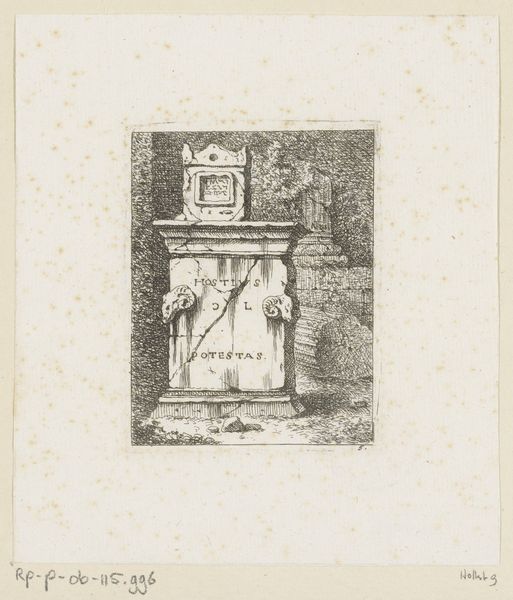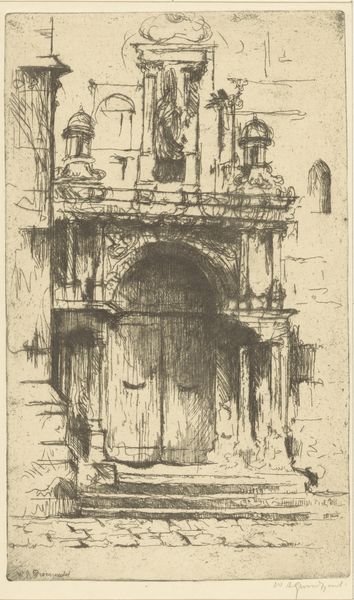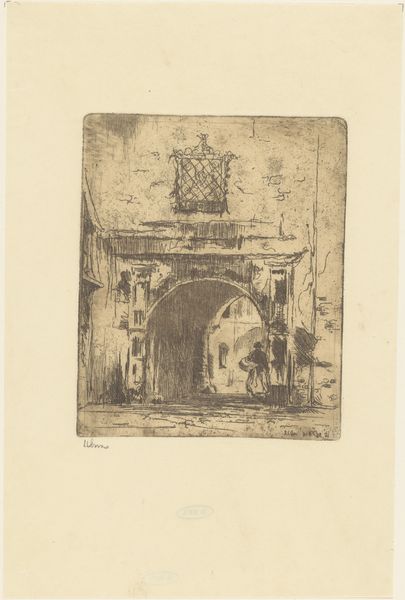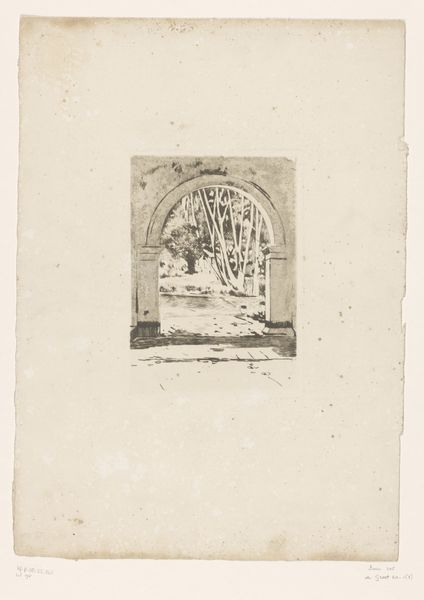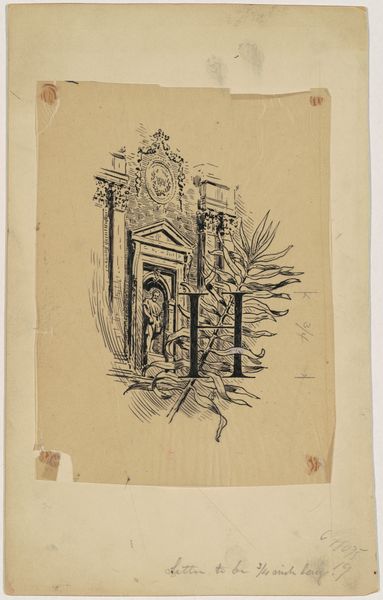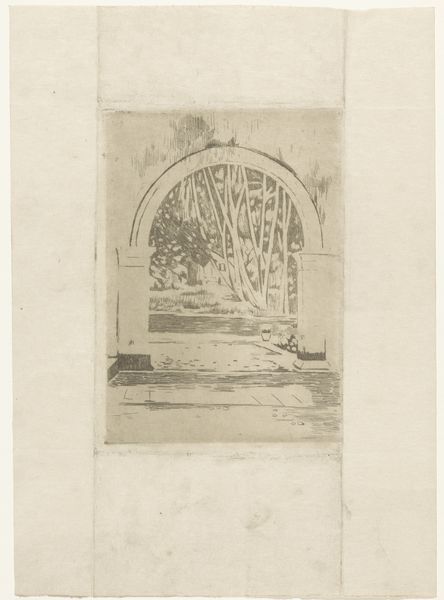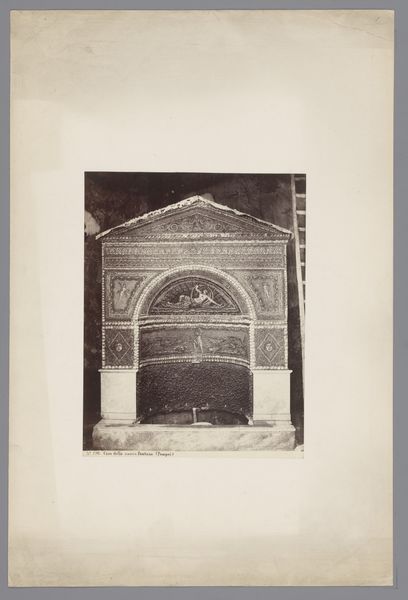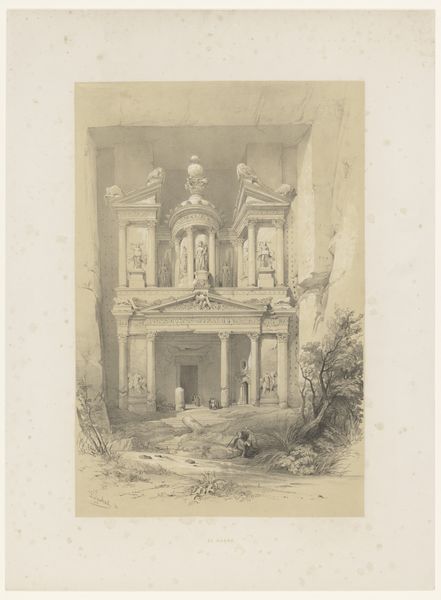
Poort van het stadhuis in Rothenburg ob der Tauber 1888 - 1934
0:00
0:00
willemadrianusgrondhout
Rijksmuseum
drawing, etching, ink, pencil
#
architectural sketch
#
landscape illustration sketch
#
drawing
#
mechanical pen drawing
#
pen sketch
#
etching
#
landscape
#
etching
#
personal sketchbook
#
ink
#
pen-ink sketch
#
pencil
#
sketchbook drawing
#
cityscape
#
storyboard and sketchbook work
#
sketchbook art
#
realism
Dimensions: height 346 mm, width 247 mm
Copyright: Rijks Museum: Open Domain
Editor: Here we have Willem Adrianus Grondhout's "Poort van het stadhuis in Rothenburg ob der Tauber," created sometime between 1888 and 1934. It's an etching in ink and pencil, housed at the Rijksmuseum. There is something inviting about this city gate. I'm wondering, what catches your eye when you look at this piece? Curator: I’m immediately drawn to the raw materiality. Look at the way the artist uses etching and pencil – it's not just about depicting the scene, but about revealing the labor involved. The varying line weights, the visible strokes, they speak to the physical act of creating the image. Editor: So you see the process as being central to its meaning? Curator: Precisely! And consider Rothenburg itself – a city known for its medieval architecture, heavily reliant on craft traditions. Grondhout’s choice of media subtly highlights the relationship between the city's built environment, its history of manual trades, and the artistic process itself. Are we simply meant to appreciate the scene, or consider how and why it was made? Editor: That makes me think about the availability of materials at the time. Ink, pencil, and etching – relatively accessible, perhaps suggesting a wider audience for art appreciation beyond the elite? Curator: Absolutely. It challenges the notion of "high art" by grounding it in everyday materials and relatable scenes. The artist wasn't working with precious materials for a royal commission; this feels more like documentation, almost industrial in its process-oriented aesthetic. Do you think that interpretation makes sense in the context of what we see? Editor: It does. I hadn't thought about it in terms of material access and the potential democratization of art. Now I’m wondering about the social status of sketching as a pastime, not just as a professional pursuit. Curator: Precisely the kind of question this piece provokes! It makes one think beyond just *what* is depicted to *how* and *why* that depiction took place, connecting the art to broader social and economic contexts.
Comments
No comments
Be the first to comment and join the conversation on the ultimate creative platform.
